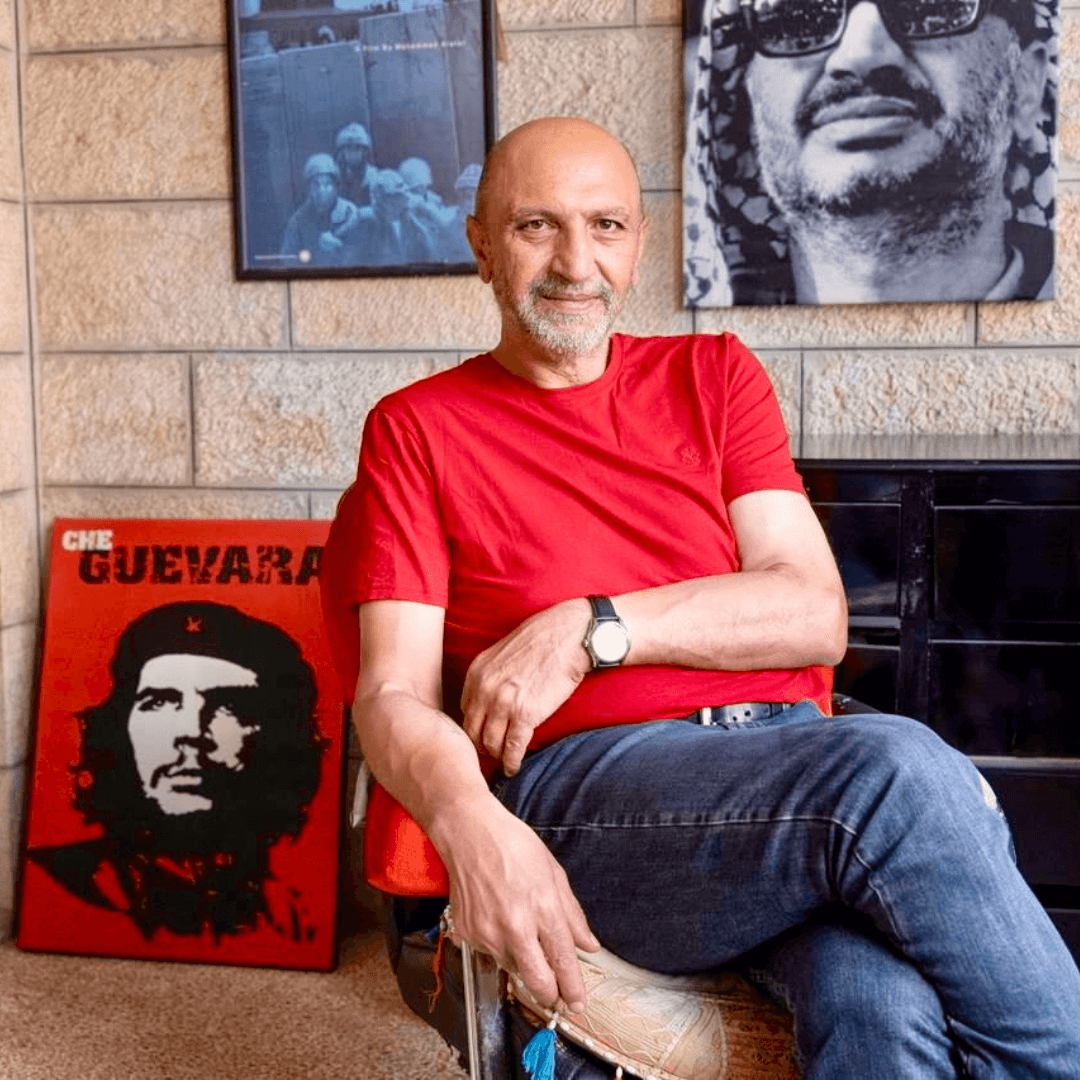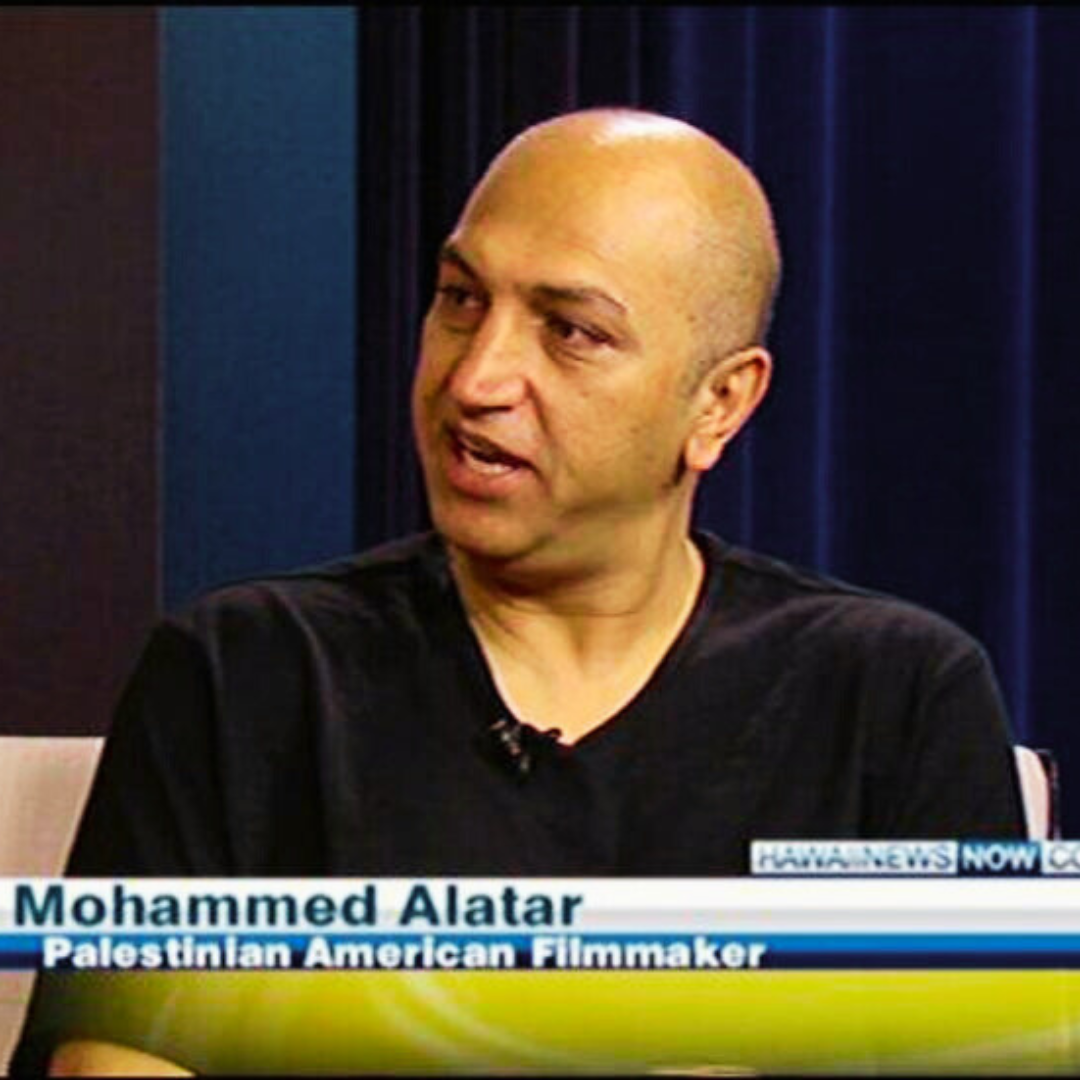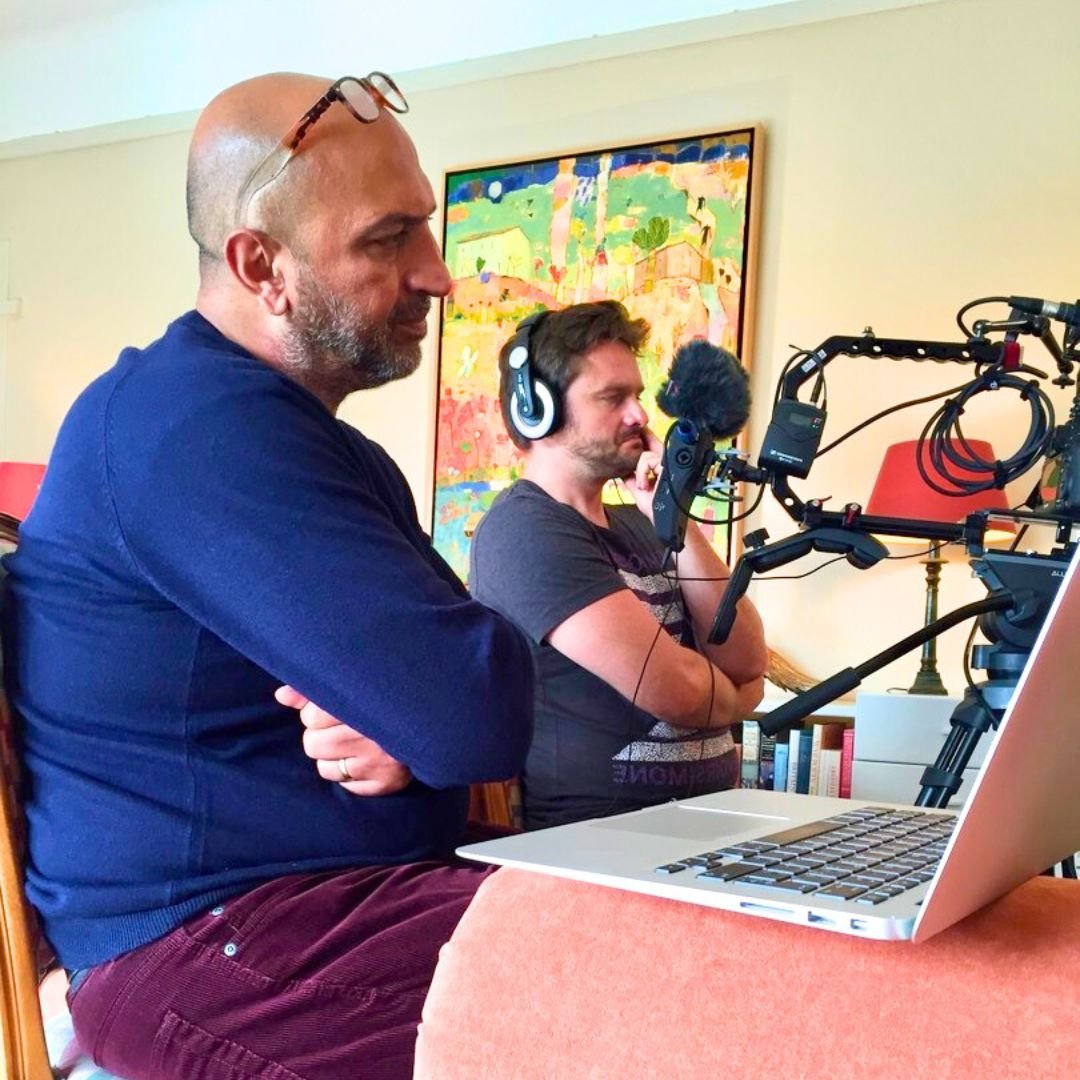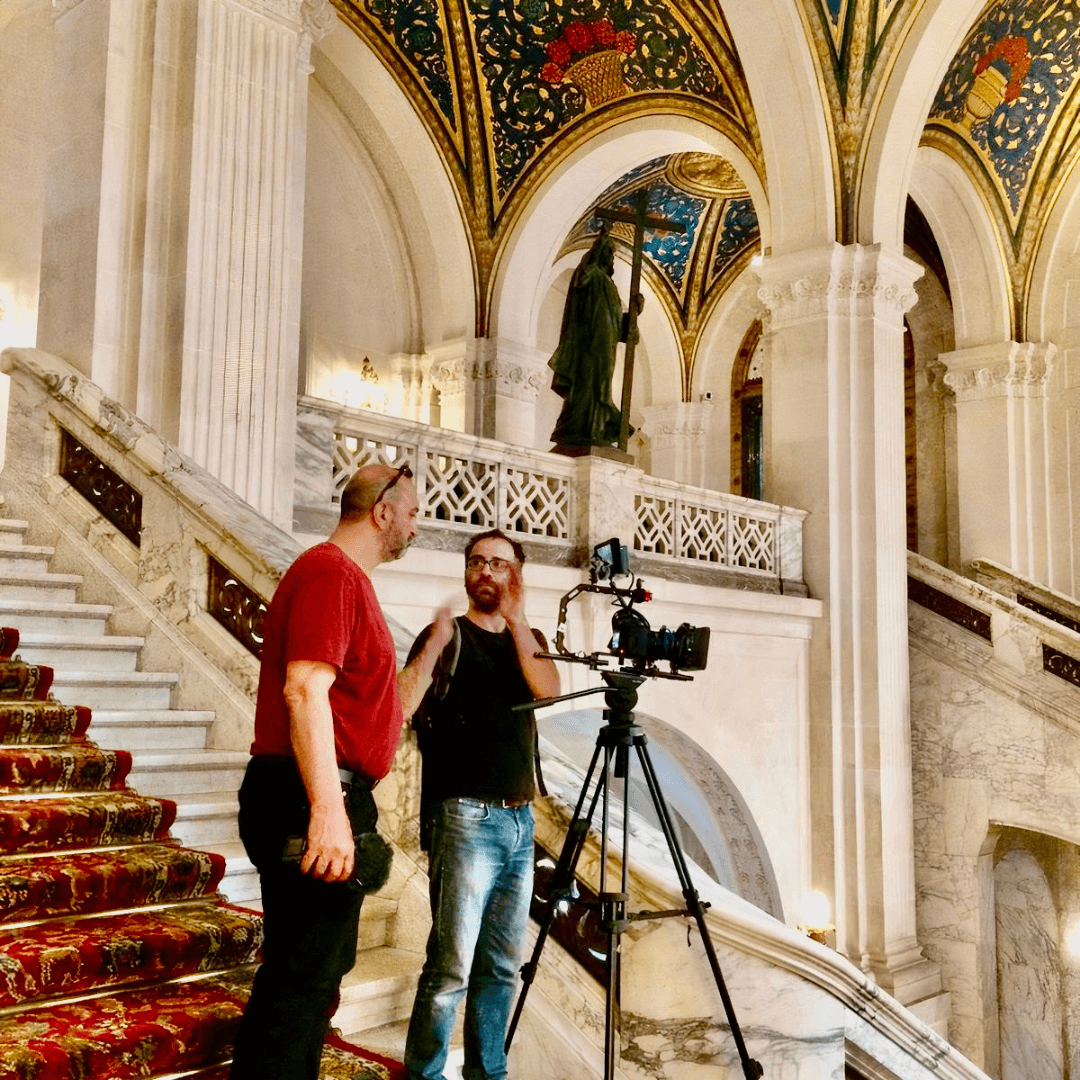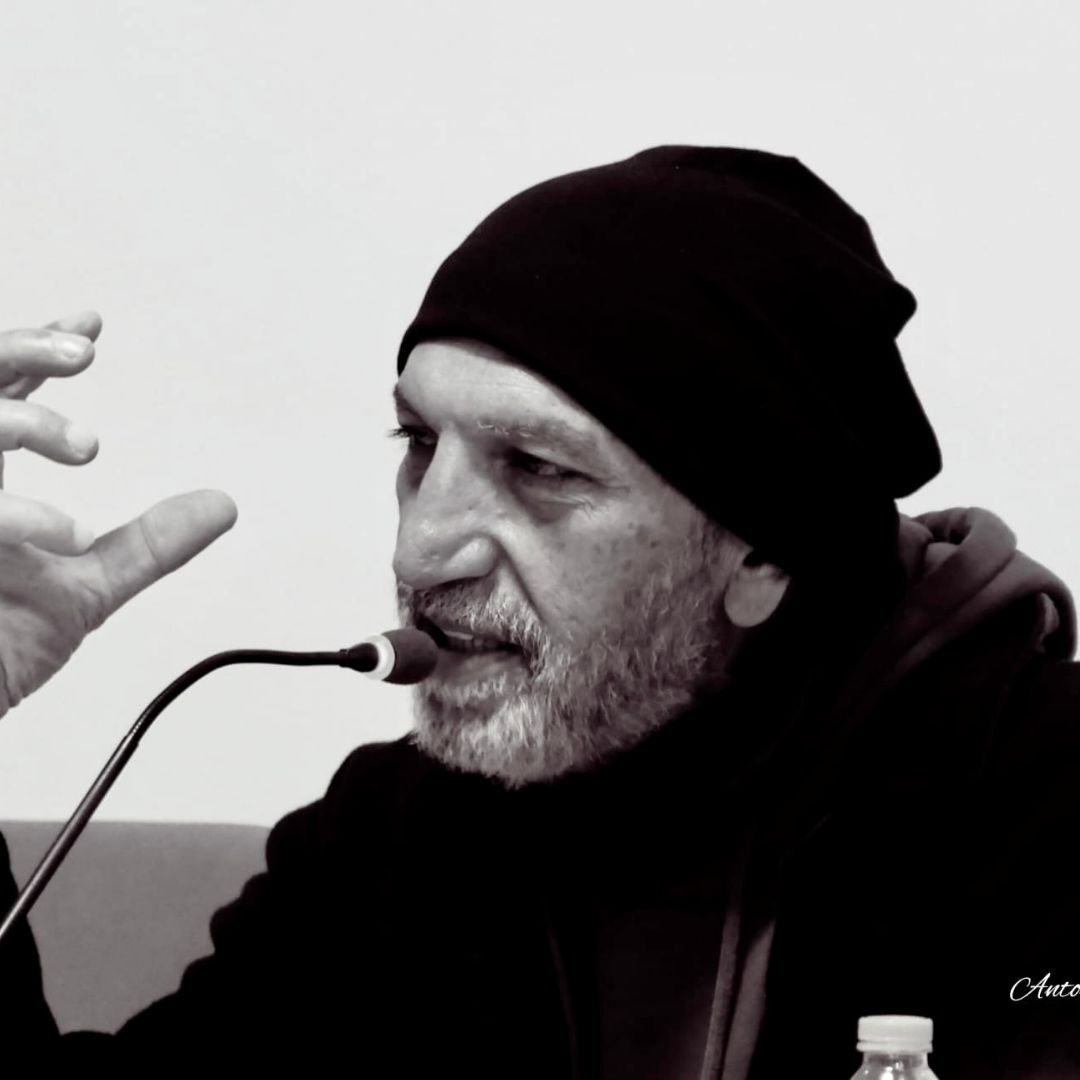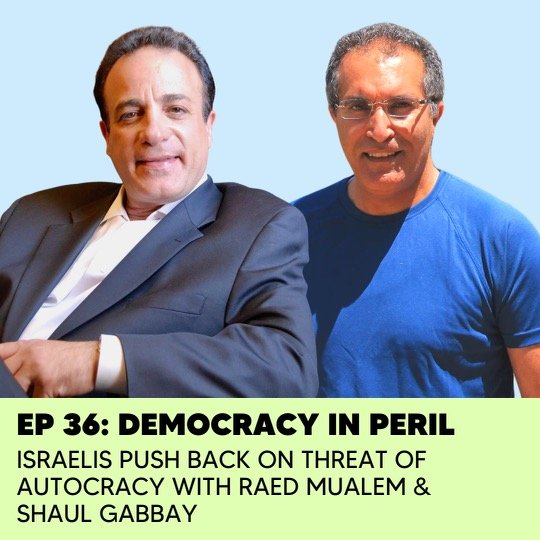#65 | Palestinian Filmmaker Mohammed Alatar: Documenting Injustice & Resilience in Occupation
🎧 Full Episode: YouTube | Apple Podcasts | Spotify
Mohammed Alatar is a Palestinian filmmaker who writes, directs and produces documentaries about life in Occupied Palestine. He chose cinema as a means to tell the story of his people in the most powerful way possible. His six completed films thus far are a testament to his deep compassion and desire to fight for human rights, not only for Palestinians, but for all who are deprived self-rule and self-determination.
Mohammed shares his unique journey from his birthplace in Jenin in the north of the West Bank to being raised in Jordan, followed by a chapter of his life in the United States where he learned to be a filmmaker. Ultimately, he returned to Palestine to fulfill his mission. His early fascination with cinema as a medium to tell the stories of his people laid the groundwork for his career in filmmaking, leading him to produce impactful documentaries like The Iron Wall and Jerusalem: The East Side Story. (follow the links to watch for free on YouTube)
His past working experiences include positions as Future Stories Director for CBS, New Media Advisor to UNDP and the Minister of Jerusalem Affairs. In 2002, he founded & directed Palestinians for Peace and Democracy.
With a profound commitment to human rights and his people’s struggle, Mohammed Alatar sees himself as a human rights activist first and a filmmaker second. Inspired by his mentors, Oliver Stone and Egyptian director Yousef Chahin, who both create movies that prioritize message over entertainment alone, his films serve as powerful tools to bring visibility to the causes and values he defends.
In this candid conversation, Mohammed opens up about the motivations behind his films, emphasizing the vital role of cinema plays in conveying the raw emotions and harsh realities faced by Palestinians living under occupation. With meticulous attention to detail and a keen focus on engaging the senses beyond the visual, his approach to filmmaking captures the essence of the Palestinian struggle with profound empathy and insight, offering viewers a deeply moving and eye-opening experience.
In our thought-provoking discussion, we delve into the current war in Gaza, the alarming use of famine as a tool of war, and the increased global awareness and support for the Palestinian cause. Mohammed's critique of the U.S. role in the ongoing conflict and his calls for greater understanding and recognition of Palestinian humanity resonated deeply. Despite facing challenges, including financial constraints for his latest project exploring the little-known history of the World War II Holocaust in the Arab world, Mohammed remains committed to telling stories that foster understanding, challenge misconceptions, and humanize the Palestinian narrative.
This episode not only sheds light on Mohammed Alatar's journey as a filmmaker but also invites listeners to reflect on the complexities of the Israeli-Palestinian conflict, the power of storytelling, and the universal quest for justice and recognition. Mohammed's unwavering hope and dedication to his craft, coupled with his insightful perspectives, make this an essential listen for anyone looking to grasp the nuances of one of the most enduring and heart-wrenching conflicts of our time.
🎧 Full Interview with Mohammed Alatar: YouTube | Apple Podcasts | Spotify
Click here to view the trailer for Broken
In this episode, we discuss:
Mohammed Alatar’s journey from Jenin to becoming a renowned Palestinian filmmaker, emphasizing the role of cinema in telling the Palestinian narrative.
Technical and emotional challenges of documenting life under occupation, highlighting the power of visual storytelling to capture complex human emotions.
Mohammed’s approach to documenting the Israeli-Palestinian conflict, presenting a nuanced portrayal of Palestinian resilience and suffering.
The films "The Iron Wall" and "Jerusalem: The East Side Story," as others as vehicles for exposing the realities of occupation and conflict.
Mohammed’s concern over escalating violence and humanitarian crises in Gaza and the West Bank.
The weakness of the International Court of Justice.
The need for humanization of Palestinians in media and cinema.
The challenges of creating impactful documentaries amid financial and political constraints.
The unique power of storytelling in the fight for justice and human rights.
Watch Mohammed Alatar Films
Click to Watch: Jerusalem: East Side Story
Click to Watch Land Day
Click to Watch The People’s Patriarch
Click to Watch: Suffocation

